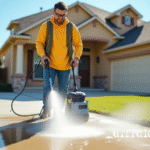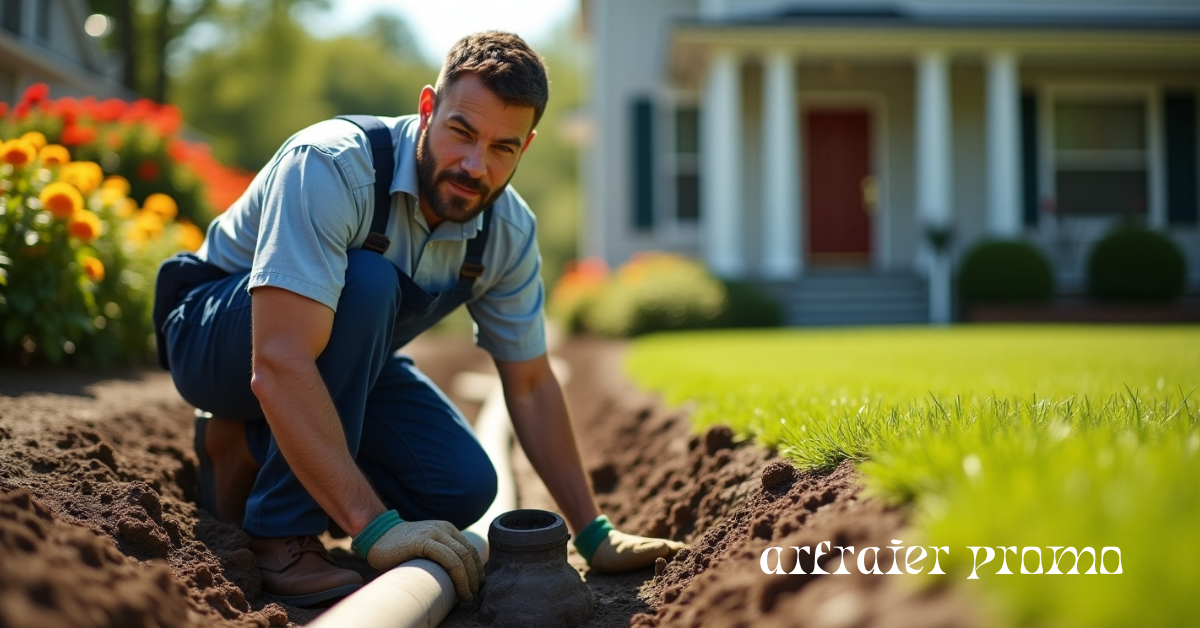An asphalt driveway is one of the most popular choices for homeowners who want a smooth, durable, and cost-effective surface for their vehicles. Known for its sleek appearance and quick installation, asphalt can last for decades with proper care. In this guide, we’ll cover everything you need to know — from installation costs and step-by-step processes to eco-friendly options, pros and cons, and creative ideas to boost curb appeal.
What Is an Asphalt Driveway?
An asphalt driveway is made by combining bitumen (a sticky, black petroleum-based material) with aggregates like sand, stone, or gravel. The result is a strong, flexible surface that can withstand heavy traffic and changing weather.
Types of Asphalt Driveways:
-
Hot Mix Asphalt (HMA): Most common, installed while hot for maximum durability.
-
Recycled Asphalt Pavement (RAP): Made from reclaimed asphalt, an eco-friendly and cost-saving option.
-
Porous Asphalt: Allows water to drain through, reducing puddles and runoff.
Cost of Asphalt Driveway Installation
The cost of installing an asphalt driveway generally ranges between $3–$7 per square foot.
Factors affecting cost:
-
Size of the driveway
-
Type of asphalt mix
-
Labor and location
-
Site preparation requirements
-
Additional features like borders or drainage systems
Cost Comparison :
| Material | Average Cost per Sq. Ft. | Lifespan | Maintenance Level |
|---|---|---|---|
| Asphalt | $3 – $7 | 15–25 years | Moderate |
| Concrete | $4 – $10 | 25–40 years | Low |
| Gravel | $1 – $3 | 5–10 years | High |
Step-by-Step Asphalt Driveway Installation Process
-
Planning & Measurement – Determine dimensions and layout.
-
Excavation – Remove old material or soil to create a solid foundation.
-
Base Preparation – Add and compact crushed stone for stability and drainage.
-
Laying Asphalt – Spread hot asphalt evenly and compact with a roller.
-
Curing & Final Touches – Allow to set, apply sealcoat if needed, and finish edges.

Eco-Friendly Asphalt Driveway Options
If you want a driveway that’s better for the environment, consider:
-
Recycled Asphalt (RAP): Made from old asphalt, reducing landfill waste.
-
Porous Asphalt: Allows rainwater to filter into the ground, preventing runoff.
-
Warm Mix Asphalt: Produced at lower temperatures, reducing energy consumption and emissions.

Maintenance Tips for a Long-Lasting Asphalt Driveway
-
Sealcoat every 2–3 years to protect from UV rays and water damage.
-
Repair cracks early to prevent them from spreading.
-
Clean oil stains promptly to avoid surface weakening.
-
Use snow shovels with plastic edges in winter to avoid scratches.
You can find more asphalt driveway maintenance tips in our detailed guide.
Common Mistakes to Avoid
-
Skipping base preparation.
-
Choosing the cheapest mix without checking quality.
-
Ignoring proper drainage design.
-
Not hiring experienced installers.
Pros and Cons of Asphalt Driveways
Pros:
-
Durability: Can last 15–25 years with proper maintenance.
-
Cost-Effective: Typically cheaper than concrete.
-
Fast Installation: Often completed in 1–2 days.
-
Attractive Finish: Smooth, black surface that enhances curb appeal.
-
Easy to Repair: Cracks can be filled quickly without replacing the entire surface.
Cons:
-
Requires Periodic Maintenance: Needs sealcoating every 2–3 years to stay protected.
-
Heat Sensitivity: Can soften and become sticky in extremely hot weather.
-
Shorter Lifespan Than Premium Options: Lasts less time compared to pavers or high-end concrete.
-
Susceptible to Cracking: Temperature changes and heavy loads can cause cracks.
-
Oil Stains Easily: Petroleum-based materials can absorb oil and fuel spills.
Asphalt Driveway Ideas for Better Curb Appeal
-
Decorative Borders: Add brick, paver, or stone edges.
-
Driveway Lighting: Improves safety and adds elegance.
-
Mixed Materials: Use asphalt in the center with paver or stamped concrete edges.
-
Landscaping: Plant flowers or shrubs along the driveway sides.

Asphalt Driveway vs. Other Materials
| Feature | Asphalt | Concrete | Pavers |
|---|---|---|---|
| Cost | Lower | Higher | Highest |
| Installation Time | 1–2 days | 3–7 days | Several days to weeks |
| Lifespan | 15–25 years | 25–40 years | 30–50 years |
| Maintenance | Moderate (sealcoat) | Low | Low to Moderate |
Conclusion
An asphalt driveway offers a winning combination of affordability, durability, and style. With proper installation and maintenance, it can serve you well for decades. Whether you choose standard hot mix or eco-friendly options, hiring experienced professionals ensures a smoother, longer-lasting result.
Frequently Asked Questions (FAQs)
How long does an asphalt driveway last?
With proper maintenance, 15–25 years.
Can I install an asphalt driveway myself?
It’s possible, but professional installation ensures better results and longevity.
How soon can I use my asphalt driveway after installation?
Usually after 24–48 hours, but full curing takes a few months.
What is the best time of year to install an asphalt driveway?
Late spring through early fall when temperatures are moderate.
How often should I sealcoat my asphalt driveway?
Every 2–3 years.
Is an asphalt driveway cheaper than concrete?
Yes, asphalt typically costs less to install and repair than concrete.






